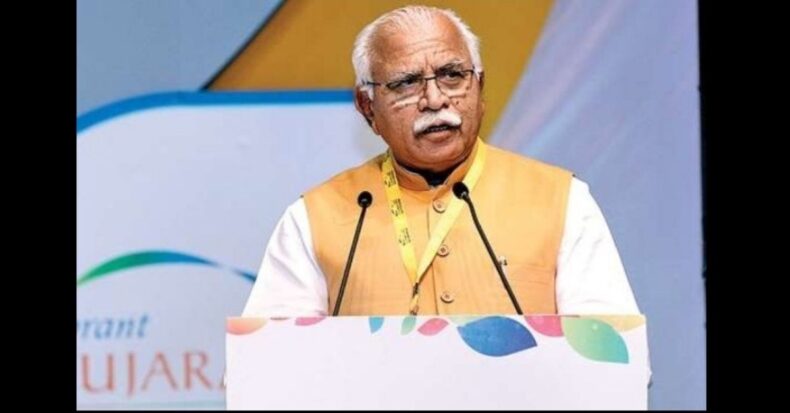On Tuesday, the Haryana government passed the right to fair compensation and transparency in Land Acquisition, Rehabilitation and Resettlement (Haryana Amendment), Bill, 2021. The opposition demanded the withdrawal of the Bill.
The BJP-JJP government of Haryana has passed the right to fair compensation and transparency in Land Acquisition, Rehabilitation, and Resettlement (Haryana Amendment), Bill, 2021 to modify the right to fair compensation and transparency in Land Acquisition, Rehabilitation, and Resettlement (Haryana Amendment), Bill, 2013.
The law proposed the easy acquisition of land without the consent of the public interest and to speed up infrastructure development. However, the Bill has been opposed and claimed as “anti-farmer” and promote “crony capitalism”.
A controversial segment of law:
It has brought Public-Private Partnership (PPP) projects to the ‘exempt’ category, for which Social Impact Assessment (SIA)/ consent of landowners is not required.
This takes off the Central Land Acquisition Act of 2013, which stated Social Impact Assessment (SIA)/ approval of landowners is a must.
The Bill stated the condition of 48-hour prior notice to the owner of the land evacuated. Occupants have to abandon the land after the Collector announces the award.
The amendments also took away the provision to give the expelled people land as a mark of compensation.
The Collector can decide the fair compensation and mark the award if he is satisfied that all persons interested in the land have consented to the terms and conditions of their free will without further inquiry.
In this condition, tenants and the poor who do not own any land may lose out, and female heirs who do not have systematic records will get affected.
Exempted projects include:
Projects crucial, national security or defense of India; rural infrastructure including electrification; affordable housing, industrial corridors set up by the state government or its undertakings wherein land up to 2 km on either side of the designated railway lines or roads can be acquired; projects relating to health and education, urban Metro and rapid rail projects.
PPP projects where land ownership will be grand to the state government.
Features of land acquisition law of 2013:
The 2013 Act replayed the Land Acquisition Act, 1894 (1894 Act), and provided higher compensation to people who lose their land in developing projects in the public and private sectors.
80% of affected families must agree, To private projects. 70% of affected families must agree, To the PPP project. Only then the land can be acquired.
Under Social impact assessment (SIA), the permission of artisans, small traders, and laborers whose work has been affected by the project is important.
Compensation would be allowed at a double rate in rural areas and urban areas as under market price. And artisans, small traders, and laborers whose work is affected will be provided with payments.
Fertile land and agricultural land should be acquired as a last resort if the acquired government will form a wasteland somewhere else for agricultural purposes.
The government says that if private companies acquire the land, the private entities will be responsible for providing all compensation.
The government’s head of the department will be answerable if the project doesn’t start within five years. The land will be given back to its owners.
The former chief minister of the state Bhupender Singh Hooda, the opposition leader, stated that the law supports crony capitalism and is against farmers.
Congress leader Shamsher Singh Gogi also claimed that thousands of farmers were already agitating against the farm bill. This Bill is in addition to the anti- farmer’s Bill.
In his clarification, Manoharlal khatter said that this law is a precise balance in completing developmental projects and compensating landowners.












